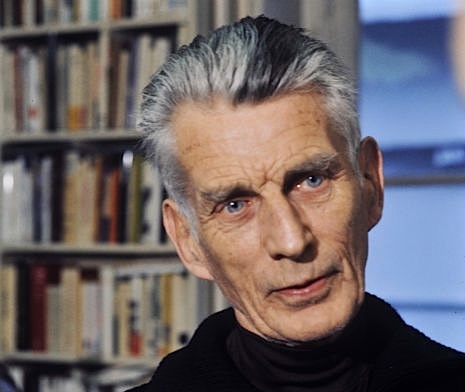
Samuel Beckett said little of his experiences during the Second World War. He dismissed his work with the French Resistance as “boy scout stuff.” Whatever his activities, they were important enough for General Charles de Gaulle to award Beckett the Croix de Guerre.
After the war, he returned home to Ireland to see his mother. He stopped off in London to visit friends, who noticed the change in him—he had lost weight, looked tired, weary, his face lined, his teeth bad.
At home in Dublin, he was saddened to find his mother ill with Parkinson’s disease. He stayed to look after her for six weeks. It was during this time that Beckett had an epiphany that was to change his life, and eventually modern literature.
One day, while out walking along the harbor wall during storm, Beckett had a vision how his life must be if he wanted to succeed as a writer.
He had always written in English, and had been long influenced by James Joyce. Facing out to the gray, lace-capped sea, Beckett understood he must write in another language, and must break with Ireland’s rich literary traditions, which were holding him back. He suddenly saw his path was not with “enrichment,” but with “impoverishment.”
“I realized that Joyce had gone as far as one could in the direction of knowing more, [being] in control of one’s material. He was always adding to it; you only have to look at his proofs to see that. I realized that my own way was in impoverishment, in lack of knowledge and in taking away, in subtracting rather than in adding.”
Beckett began to write in French, and over the following decade, he composed the novels, poetry and plays that established his reputation as one of the century’s greatest authors.
With reference to the autobiographical elements contained within Krapp’s Last Tape, this two-part documentary, Samuel Beckett: As the Story was Told is “a rare glimpse into the reclusive world of this literary giant, whose most famous work, Waiting for Godot, evokes with unnerving precision the cosmic despair and isolation of modern humankind.”